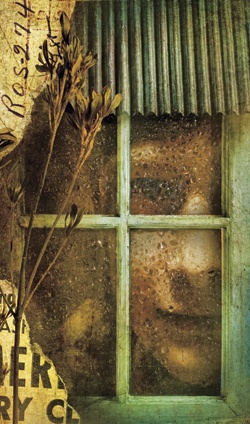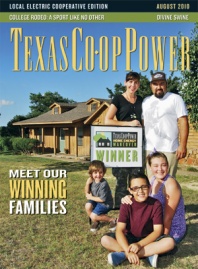My dad, a native of Sabine County in East Texas, moved to Wichita Falls shortly after the end of World War I, borrowed money from an uncle and opened a small radio shop. The stock market crashed in October 1929, six weeks before I was born. This fiscal collapse ended seven years of unparalleled prosperity for the United States. Prices plummeted, banks began to fold, and in less than a month, some $30 billion in stock value had disappeared. Within four months, 3.2 million people were unemployed.
Dad entered into a bleak struggle to find customers to keep his shop open. By winter of 1934, the depression had a death grip on the economy. With three children to feed, he had to give up the shop. Having inherited a 270-acre farm in San Augustine County, he decided to return to East Texas where the family could survive with a large garden, chickens for eggs, milk cows for dairy products and steers and hogs for meat.
Since there wasn’t a spare inch of room left inside our Model T Ford coupe, Ginger, my collie, already a seasoned “running-board rider” on short trips, was allotted space on the left running board for the entire journey—more than half of which was driven on gravel roads. The time was marked by fixing flats, stopping for gasoline, stretching cramped muscles and traveling through downtown Dallas. We averaged slightly less than 25 mph. We left Wichita Falls around 6 a.m., spent the night in a tourist court in Henderson and arrived at my grandparents’ home in deep East Texas about 10 a.m. the following day.
Two scenes remain vivid: As we made the grueling trip, Dad sang “Pennies from Heaven” without the slightest hint of defeat or fear. And when we arrived in East Texas and my grandparents met us at the front gate, I was last to be hugged by my grandmother, who whispered, “Well, bless your little heart.” At that moment a “pet” relationship was established with my grandparents that lasted the rest of their lives. When my grandmother asked my grandfather why he was standing at the foot of the bed where I was napping, he replied, “I was just listening to him breathe.”
We lived with my grandparents on their farm for three months, waiting for the tenants to move out of Dad’s house. Then on July 4, 1935, we began an all-day cleanup. The three-room, frame house was unpainted with a tin roof and two small porches, on the east and west. A giant walnut tree also shaded the west side. The floors were made of rough lumber, and the walls were bare, with no canvas or wallpaper. The total living space, not counting the porches, was 700 square feet. The ceilings consisted of bare boards with a large attic above. Outside was a privy, a barn and a 62-foot-deep hand-dug well, with a bucket, rope and pulley.
Mom cooked on a kerosene stove, while a secondhand ice box provided minimal storage for milk, butter and eggs. Pallets on the floor left sleeping arrangements far short of adequate. As winter approached, the situation worsened. Necessity driving ingenuity, Dad built a ladder straight up the pantry wall to the trap door that opened into the attic.
Since it wasn’t floored, an 8-foot square was covered in the northeast corner, and several loose boards were laid across the rafters to provide a walkway to my newly installed bed. Although I didn’t have a light, chair, table, window or floor, I had my own room—and a bed.
An outstanding feature of my private space was the tin roof just 3 feet above my bed. My young ears could hear a walnut leaf land on the roof and slowly slide down the incline. My ears picked up the various sounds of precipitation and its densities. Drizzle had a faint, steady murmur, while light rain showers also contained the murmur but were overlaid with a tiny splattering. The murmur disappeared with full rain showers and was replaced with a tattooing roar. If there was wind with the rain, the tattoo undulated in sweeping waves. Snow was almost absent of sound, just a faint click now and then. Hail, on the other hand, made such a clamor of violent reverberations it drove me out of bed and down the ladder. The duet between the tin roof and raindrops produced beautiful lullabies.
Things slowly improved. As hardships arose, we met them with new efforts. Two rooms were added downstairs, and the attic turned into an upstairs area. A little brother joined the family, as did electricity, indoor plumbing and butane gas. Dad’s entrepreneurial spirit took him through several ventures, culminating in a butane delivery business with five outlet stores in East Texas.
As for me, three-quarters of a century later, even without the tin roof or the Great Depression, I can still hear music in the patter of rain.
——————–
Harry Noble is a freelance writer living in San Augustine.


